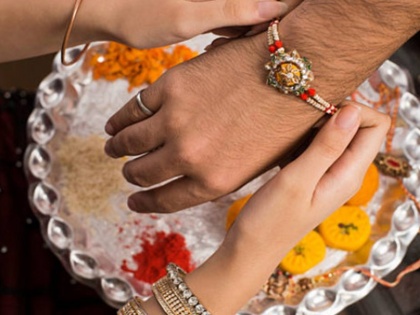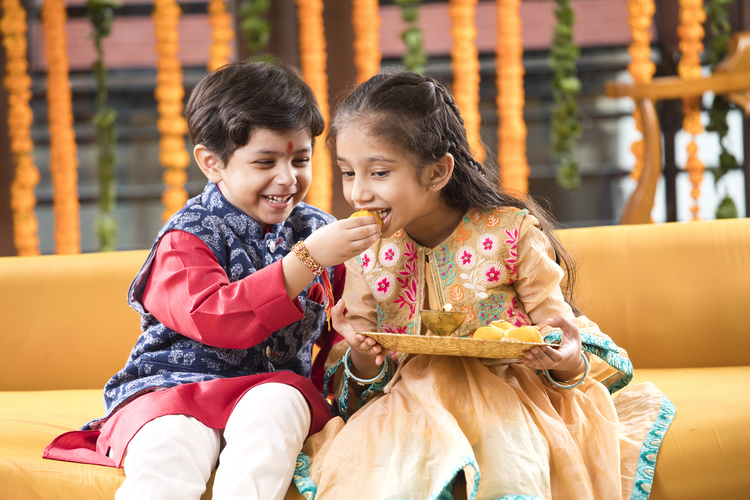Raksha Bandhan: Exploring Its Historical Significance
Hello, my lovely readers! Welcome back to my blog. As you know, today is Raksha Bandhan, so I thought of sharing something interesting about it. So let's dive in and unravel the facts!
Raksha Bandhan is a religious celebration that honours sibling love and is held on the final day of the Sawan lunar month. In this festival, sisters tie a sacred amulet (Rakhi) on their brother's wrist, which symbolises the promise of protecting each other from all odds. It upholds the unbreakable link between siblings. The festival has evolved over time, carrying tales of Draupadi and Krishna from the Mahabharata and even undergoing transformation into a social movement during the colonial era.
One of the most intriguing tales associated with Raksha Bandhan comes from the Mahabharata, an ancient Indian epic. The spiritual bond between Draupadi and Krishna is revealed in this tale. The mysterious god Krishna wounds his finger while handling sugarcane. When Draupadi notices this, she cuts a piece of her saree and uses it to bind Krishna's wound, beginning their relationship. Years later, after Draupadi endures an abhorrent public disgrace, Krishna, ever the guardian, utilises his supernatural abilities to prolong her saree indefinitely, safeguarding her honor. This story highlights the festival's core message, which is a guarantee of security regardless of the situation. However, this celebration has witnessed evolution over time, notably after Rabindranath Tagore's transformative intervention.
Bengal had a nationalist uprising in the early 20th century that threatened the British Raj's hegemony. The British government's answer was to split Bengal and stifle its growing nationalist movement. The Nobel Prize-winning author and literary great Tagore used the concept of Raksha Bandhan to inspire harmony across many ethnicities. Tagore's appeal for action in 1905, when the Indian subcontinent was coping with the imminent split, cut across religious lines. Hindus and Muslims pledged to stick together against oppression and divide by tying rakhis on each other's wrists. Raksha Bandhan has evolved from a family tradition to a representation of social peace and resistance, a manifestation of Tagore's imaginative spirit.
Despite the terrible partition of 1947 shattering Tagore's vision of a united India, the fundamental meaning of Raksha Bandhan as a unifying celebration is still important today. The necessity for cooperation and common defense is crucial at a time marked by international problems. The rakhi's symbolic thread serves as a strong talisman that protects us from harm and serves as a constant reminder of the power found in the hug of our loved ones.
Another narrative, which takes place in 1535 CE, features Rani Karnavati, the widowed queen of Chittor, and Emperor Humayun. Rani Karnavati, who was under Sultan Bahadur Shah's terror, sent a rakhi to Humayun, pleading for his protection. He answered, but his arrival came after a devastating Jauhar, a sacrifice made to uphold honour. When Humayun overthrew Bahadur Shah, the son of Karnavati regained control. Although historians disagree with it, this fable represents the safeguarding spirit of Raksha Bandhan throughout history.
 |
| Emperor Humayun |
The historical significance of Raksha Bandhan can also be found in many other instances where the thread of protection lies beyond the relationship of siblings. Before going into combat, soldiers would frequently receive threads from their spouses, mothers, or sisters. These threads were worn as a sign of assurance and affection since it was thought that they had the power of protection.
Today, more and more women are tying Rakhis around their wrists and spreading love. In this modern perspective, it underlines the solidarity, liberation, and support of women towards one another. It acknowledges how strong female bonds are and how they serve as one another's defenders. Rakhis are presents that people exchange with one another to strengthen bonds and show care. This highlights the festival's central message of universal love, care, and protection that goes beyond familial ties.
Even though Raksha Bandhan is a fundamental part of Indian culture, it has also extended to many South Asian countries other than India. Countries like Pakistan, Nepal, and Mauritius, including the expatriate populations, are also celebrating this day with fervour and pride. These intriguing features of Raksha Bandhan reveal how the celebration has expanded beyond its usual bounds while upholding its fundamental principles of togetherness, love, and protection. With its timeless message of caring and solidarity, it continues to serve as a bridge between tradition and modernity, uniting generations and communities.
Raksha Bandhan crosses religious and geographical boundaries since it is entrenched in mythology and history. It has travelled through generations, reflecting the unshakeable relationship between siblings and communities. Let us keep in mind the festival's beginnings, its development, and the continuing promise of safety it represents as we observe it.

%20(1).jpg)


Comments
Post a Comment